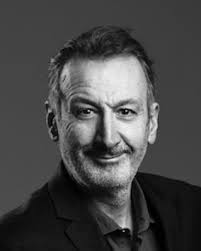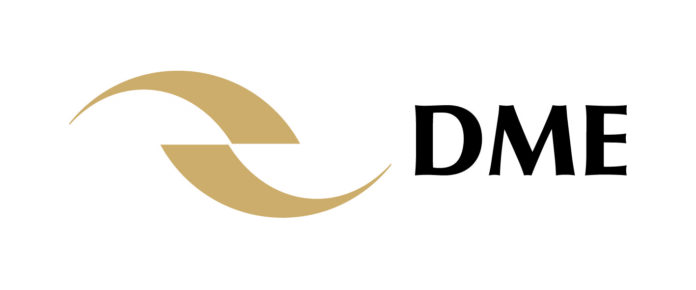[ad_1]
Sylvain Bourmeau is founder and director of the online media outlet AOC (“Analyse, Opinion, Critique”), founded in 2018. AOC publishes analysis, viewpoints and cultural criticism by academics, writers and intellectuals.

Its aim is to provide thought-provoking commentary at a certain remove from the news cycle. He helped launch the political science review Politix, the weekly magazine Les Inrockuptibles and the investigative outlet Mediapart. He was deputy editor of Libération between 2011 and 2014.
Before the recent elections in France, which were shaped by the surge of Rassemblement National (RN), Bourmeau penned an article entitled “The reckless irresponsibility of political journalism”, in which he commented on the attitude of French journalists to their own profession and the biases that come with the job. His analysis is relevant to the media across Europe.
Professional journalism is a fundamental component of democracy, yet it also bears some responsibility for our current crisis of democracy. So, have we failed in our duty to recount and explain the complexity of the world?
Political journalism and the rise of the far right: how should we think about this relationship?
My work consists of reflecting on the practice of journalism in general. Not just political journalism, and not just its role in favouring the far right.
But I have chosen a particular context, which is this election in France, to point out things that I have been observing for a long time and that concern journalism in general. Political journalism often seems to me to be a “concentrated” form of journalism, because it tends to caricature certain features of the profession.
Interesting article?
It was made possible by Voxeurop’s community. High-quality reporting and translation comes at a cost. To continue producing independent journalism, we need your support.
Subscribe or Donate
My own analysis of journalism, particularly in the context of my professional career, suggests some explanations about why journalists – who are often unsympathetic to the far right and do not vote for it – help to boost the far right’s scores and the visibility of its ideas in the public arena, without even realising it.
Are you thinking of media concentration? In France, the media empire of billionaire Vincent Bolloré comes to mind.
There is a theory and a tradition of media criticism which focuses on who owns the media. In this view, ownership is a determining factor in understanding things.
Obviously, the fact that Vincent Bolloré now owns a number of media outlets in France is a problem. That has also been true of Silvio Berlusconi in Italy, or Rupert Murdoch in the English-speaking world. But I think we need to look deeper.
If we simply explain this problem by imagining that editors and journalists take their orders from media owners, then I think we’re not really grasping how things work. From an economic point of view, I think it’s not so much the ownership as the business models that need to be questioned.
The media’s business model has been turned upside down by the digital revolution. We’ve seen the widespread emergence of “free” offerings that are actually paid for by advertising. This has led to a “race for clicks”: to attract audiences, the media began to behave in a certain way, and to cover certain subjects rather than others.
You talk of a “professional ideology of journalists”. What do you mean by that?
The “professional ideology of journalists” is a sociological concept. We might also use the term “professional culture of journalists”.
I’m referring to a certain type of professional practice and the justification for it, as taught in journalism schools and confirmed through experience. These practices can produce epistemological biases.
Journalism is a rather special way of learning about society: it is, by definition, global and encyclopaedic. What characterises a journalist is his or her curiosity. There aren’t many forms of knowledge that take such an interest in everything: philosophy, sociology, mathematics, law, literature, art, and so on.
For all that, journalism rarely takes an interest in how it produces knowledge. In other words, it remains somewhat naive about the question of epistemology.
You say that the very practice of journalism produces biases which, in the current context, have tended to benefit the far right. In what way?
There are a number of biases. One bias is journalism’s interest in novelty. This, of course, is at the heart of journalistic practice: “news”. The problem is that this race for novelty has been intensified by the digital revolution, since we can now do it in real time.
So the news ends up chasing its own tail. This mechanism undermines one of the sacred principles of journalism, namely its capacity to provide a hierarchy of information. That capacity is being deeply damaged by live broadcasting. A core institution of journalism is thus being undermined.
For example, to demote the hierarchy of the authority of speech is to produce a form of generalised relativism. Journalists find themselves giving equal billing to those with some authority to speak – because they represent a university, a company, or have scientific credibility – and others who just have an opinion as a citizen or as a communications consultant. We put them face to face on a stage as equals.
Novelty thus tends to lead to a de-institutionalisation of things, and I think that this benefits the far right in particular.
So this situation has helped produce highly contrasting representations of reality, which have polarised the debate and helped give the impression of a fractured society. Is that correct?
Ten years ago, in tackling the climate issue, journalists would organise debates featuring scientists – who could demonstrate the reality of climate change – and climate sceptics. That is no longer the case. At the time, journalists felt that they were doing their job properly, that they were being “impartial” by putting two contradictory opinions face to face.
There was this idea that by rubbing these two antagonistic opinions together like flints, they would produce sparks of truth. Indeed, this is something that is often taught in journalism schools: to be objective is to confront two opinions. In reality, that is an odd way of attaining objectivity.
One of the biggest biases in journalism is this idea that truth can be produced by pitting two contradictory opinions against each other. To my mind, this is a rhetorical sleight of hand that makes no sense if we’re trying to grasp what’s in front of us. Usually, in order to understand things, we need to take many more points of view into account. In fact, this principle has been settled during the history of democracy.
So should we be looking at the methodological approach of other disciplines?
Sociology, for example, is well aware that this is not the way to produce objectivity. There are many ways to try to get at aspects of reality, but objectivity is something else. Sociologists are more humble than journalists when it comes to objectifying reality.
Journalists, on the other hand, sometimes have the impression that such caricatured techniques will help them tell the whole truth. It’s a bias that benefits the far right, because it’s a way of putting subjects on the agenda that shouldn’t be there in the first place.
Is the job of journalism to find the truth?
I don’t know what the truth is. I think that the job of journalism is to describe the world, in the knowledge that by describing it we interact with it. In other words, by means of a feedback loop, we also make that world exist to some extent through our descriptions. So the important thing is to provide many descriptions.
I think that journalism must learn to break out of its own working habits, which have led it to believe that by following simple formulas it will be able to distinguish causes and consequences. To make this distinction is a constant work in progress. It is a process that must always be critical, including self-critical, and democratic, involving as many citizens as possible.
Can you give a few examples?
Take a conference of astrophysicists: they’re not going to invite someone who thinks the Earth is flat, because that kind of talk has no right to be heard and will waste everyone’s time.
Yet journalists, in the name of pluralism, or of democracy, give the floor to people who say things that are similarly ridiculous.
For example, to think that there is a huge migration problem in Europe today is about as silly as saying that the Earth is flat. Researchers who work on migration agree that migration in Europe is very minimal compared to migration on the planet as a whole, and they object to the way the issue is presented in the media.
All this obviously benefits the far right.
You spoke of a kind of obsession with deviancy and so-called human-interest news stories. Could you elaborate on this?
It’s the phenomenon, in journalism, of only looking at people who cross boundaries. This helps explain why the issue of insecurity is omnipresent in the media and why the smallest news item becomes representative of society.
Contrary to what much of the media shows us, there is no increase in violent crime by minors, nor are the offenders younger. Homicides [in France] are in fact generally on the decrease, as elsewhere. The way journalists always focus on deviance produces a twisted, skewed representation of reality. We are shown a society that is far worse off than the reality of things.
And so, with this constant stream of anxiety-producing stories and images that focus on problems (which I don’t deny exist), the media is having an obvious effect on politics. The beneficiaries are those political parties that exploit insecurity in order to prosper.
[ad_2]
Source link



















